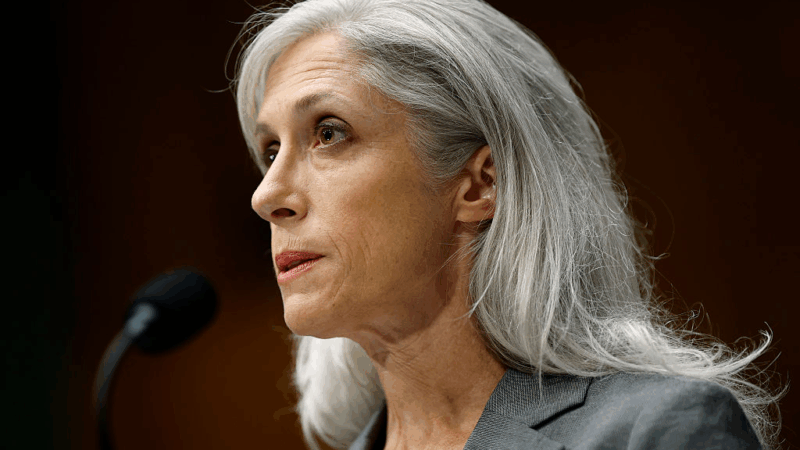Ousted CDC director testifies she was fired for resisting pressure from RFK Jr.
In a much anticipated public appearance, Susan Monarez, the former head of the Centers for Disease Control and Prevention, defended her short tenure at the embattled public health agency. She testified that she was ousted last month because she refused to follow Health Secretary Robert F. Kennedy Jr.’s demands to pre-approve vaccine recommendations for the public and fire career scientists.
“Even under pressure, I could not replace evidence with ideology,” Monarez told members of the Senate Committee on Health, Education, Labor and Pensions on Wednesday. “Vaccine policy should be guided by evidence and credible science.”
Monarez rejected Secretary Kennedy claims – outlined in a Wall Street Journal op-ed and reiterated during a congressional hearing last week – that she was fired because she was not a “trustworthy person.”
In her testimony, Monarez described a string of events that she said eventually led to her dismissal, including her clash with Kennedy over changes to an influential CDC committee that issues recommendations on vaccines.
She recounted a “tense” meeting with him in late August in which she said Kennedy told her the “childhood vaccine schedule would be changing starting in September and that she “needed to be on board.”
Senator Bill Cassidy, a Republican who chairs the committee and a medical doctor was key to advancing Kennedy’s nomination, began the hearing by pointing out that Monarez was not only the first CDC director ever confirmed by the Senate but she had also received unanimous support from his party.
When she was sworn in, Kennedy himself stated that she had “unimpeachable scientific credentials.”
“What happened? Did we fail? Was there something we should have done differently?” Cassidy said. “The American people need all the facts, not a version of the facts that fits a certain narrative or agenda.”
Also testifying was the CDC’s former chief medical officer, Dr. Deb Houry, who resigned alongside other top agency officials at the end of last month in protest of the changes at CDC.
The hearing comes on the eve of the next meeting of the vaccine advisory committee, which is scheduled for Thursday morning in Atlanta.
Kennedy fired the entire 17-member Advisory Panel on Immunization Practices in June, chose several new members at the time and selected five more on Monday. Many of the members he chose have a history of being critical of vaccines.
Following the August 8 shooting at the CDC headquarters in Atlanta, Monarez said Kennedy directed her to return to Washington D.C., though that would have meant missing the memorial service for the officer killed in the shooting. Monarez said she was “unwilling” to skip the service.
When she finally met with Kennedy on August 25, he demanded she pre-approve the vaccine advisory panel’s forthcoming recommendations and that she should resign if she was not willing to. “He just wanted blanket approval,” she testified.
He told her he had “already spoken with the White House several times about having” her removed, she said.
This story will be updated as testimony continues.
Mideast clashes breach Olympic truce as athletes gather for Winter Paralympic Games
Fighting intensified in the Middle East during the Olympic truce, in effect through March 15. Flights are being disrupted as athletes and families converge on Italy for the Winter Paralympics.
A U.S. scholarship thrills a teacher in India. Then came the soul-crushing questions
She was thrilled to become the first teacher from a government-sponsored school in India to get a Fulbright exchange award to learn from U.S. schools. People asked two questions that clouded her joy.
Sunday Puzzle: Sandwiched
NPR's Ayesha Rascoe plays the puzzle with WXXI listener Jonathan Black and Weekend Edition Puzzlemaster Will Shortz.
U.S.-Israeli strikes in Iran continue into 2nd day, as the region faces turmoil
Israel said on Sunday it had launched more attacks on Iran, while the Iranian government continued strikes on Israel and on U.S. targets in Gulf states, Iraq and Jordan.
Trump warns Iran not to retaliate after Ayatollah Ali Khamenei is killed
The Iranian government has announced 40 days of mourning. The country's supreme leader was killed following an attack launched by the U.S. and Israel on Saturday against Iran.
Iran fires missiles at Israel and Gulf states after U.S.-Israeli strike kills Khamenei
Iran fired missiles at targets in Israel and Gulf Arab states Sunday after vowing massive retaliation for the killing of Supreme Leader Ayatollah Ali Khamenei by the United States and Israel.








